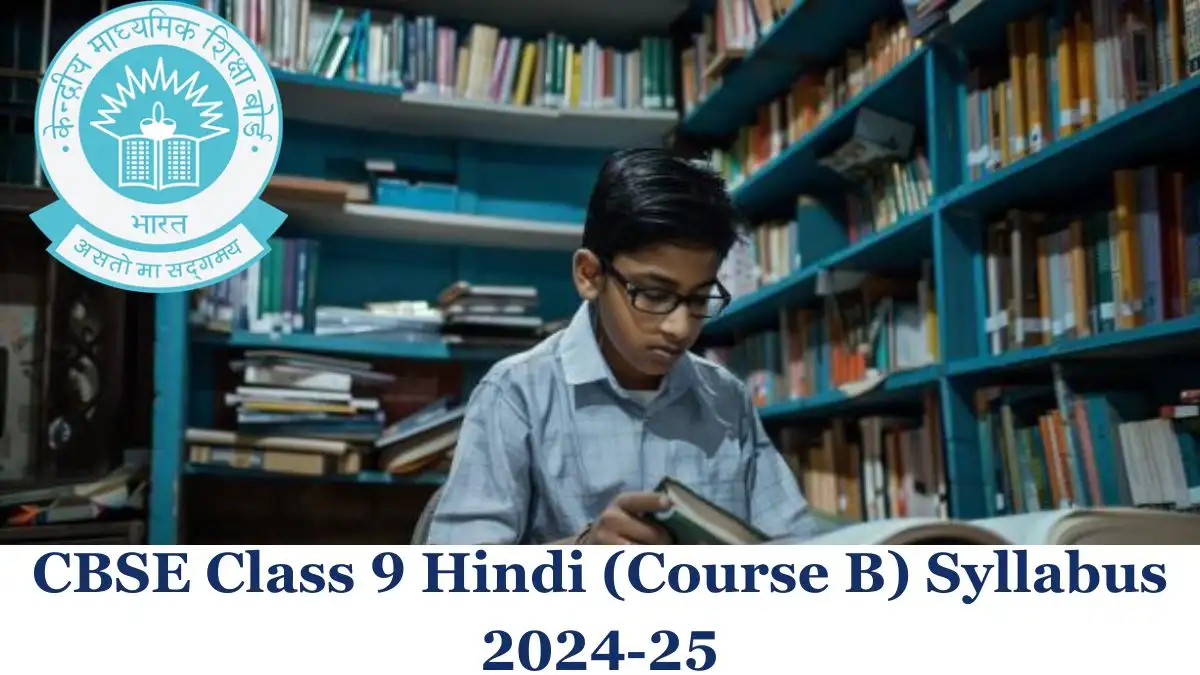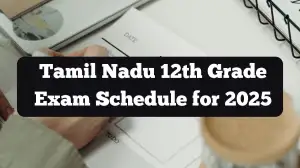CBSE Class 9 Hindi (Course B) Syllabus 2024-25, Check Exam Pattern, and More
by Kowsalya
Updated Jun 03, 2024

CBSE Class 9 Hindi (Course B) Syllabus 2024-25
CBSE Class 9 Hindi (Course B) Syllabus for the academic year 2024-25 is a crucial guide for students opting for Hindi as their second language. It provides a comprehensive outline of the curriculum, including section-wise marks distribution and topics to be covered for the final exams. The syllabus is designed by the Central Board of Secondary Education (CBSE) to facilitate effective exam preparation.
For the academic year 2024-25, CBSE has reverted to the annual assessment scheme, eliminating the semester system. This means students will be assessed based on the full syllabus at the end of the academic year.
The syllabus also highlights any chapters that have been removed from the assessment. Students are advised to align their study plans with the syllabus guidelines to excel in their exams. Here is the official PDF Syllabus for CBSE Class 9 Hindi (Course B).
Overview
Here's a table summarizing the details of the CBSE Class 9 Hindi (Course B) Syllabus for the academic year 2024-25:
|
Board |
Central Board of Secondary |
|
Official Website |
cbse.gov.in |
|
Class |
CBSE Class 9 |
|
Academic Year |
2024-25 |
|
Subject |
Hindi |
|
Subject Code |
Hindi (Course B) - 085 |
|
Status of Syllabus |
Released |
|
Deletion in Syllabus |
No |
|
Exam Pattern |
Annual Theory Exam (80) Marks + Internal Assessment (20) Marks |
|
Exam Duration |
3 Hours |
Exam Pattern
Here are the details about the CBSE Class 9 Hindi (Course B) Exam Pattern:
|
S.No. |
Subject-object |
Total Weight |
|
1 |
अपठित गद्यांश |
14 |
|
2 |
व्याकरण |
16 |
|
3 |
पाठ्यपुस्तक स्पर्श भाग 1 व पूरक पाठ्यपुस्तक संचयन भाग |
30 |
|
4 |
लेखन |
20 |
|
कुल |
80 |
CBSE
The Central Board of Secondary Education (CBSE) is a governmental board of education in India responsible for overseeing public and private schools. Established on July 2, 1929, by the Government of India, it aimed at promoting inter-state integration and cooperation in secondary education.
With over 27,000 schools in India and 240 schools in 28 foreign countries affiliated with it, CBSE follows the NCERT curriculum, particularly from classes 9 to 12. The board ensures quality education by affiliating schools and conducting examinations at the secondary and higher secondary levels. The CBSE's chairperson is currently Rahul Singh, IAS. Initially formed as a regional board, it was later reconstituted on July 1, 1962, to extend its services nationwide




